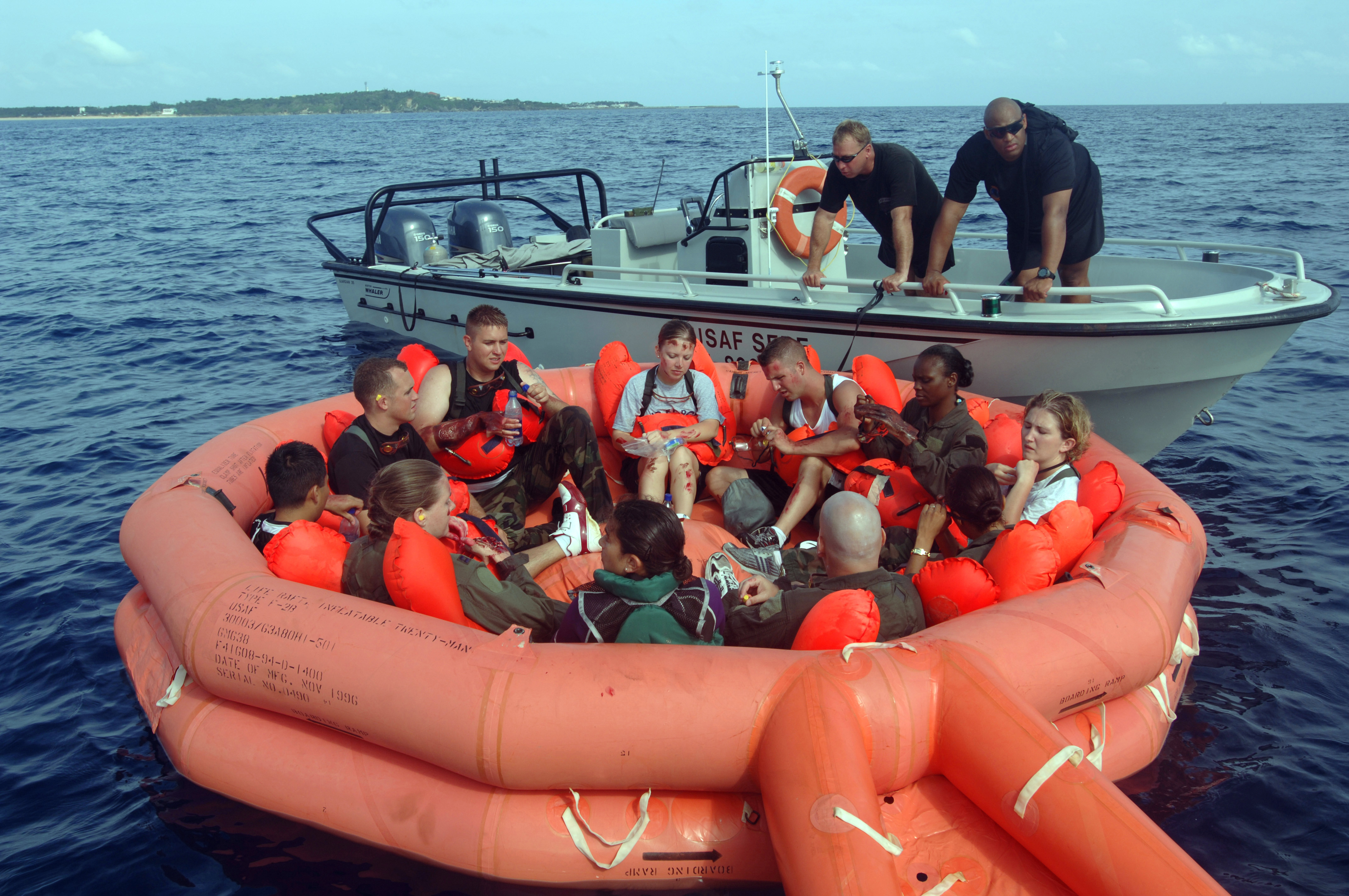Rule Of Threes (survival) on:
[Wikipedia]
[Google]
[Amazon]
 In
In
 In
In survival
Survival or survivorship, the act of surviving, is the propensity of something to continue existing, particularly when this is done despite conditions that might kill or destroy it. The concept can be applied to humans and other living things ...
, the rule of threes involves the priorities in order to survive. The rule, depending on the place where one lives, may allow people to effectively prepare for emergencies and determine decision-making in case of injury or danger posed by the environment.
Rule
Normally, the rule of threes contains the following: * You can survive three ''minutes'' without breathable air (unconsciousness
Unconsciousness is a state in which a living individual exhibits a complete, or near-complete, inability to maintain an awareness of self and environment or to respond to any human or environmental stimulus. Unconsciousness may occur as the r ...
), or in icy water.
* You can survive three ''hours'' in a harsh environment (extreme heat or cold). You need shelter!
* You can survive three ''weeks'' without food. But, many people have gone for over 40 days during fasting and have survived.
* You can survive three ''days'' without drinkable water.
Each line assumes that the one(s) before it are met. For example, if you have a large quantity of food and water but are exposed to the environment, then the harsh conditions rule applies. The rule may sometimes be useful in determining the order of priority when in a life-threatening situation, and is a generalization (or rule of thumb
In English language, English, the phrase ''rule of thumb'' refers to an approximate method for doing something, based on practical experience rather than theory. This usage of the phrase can be traced back to the 17th century and has been associat ...
), not scientifically accurate.
Additional generalizations may be presented with the rule, though they are not considered part of the "Rule of threes" and are also usually not scientifically accurate. For example, it might be said that it takes a three-second psychological reaction time to make a decision during an emergency, that one can survive 3 minutes in icy water, or that an individual can last three months without hope (or companionship).
Accuracy
Water
The amount of time a person can survive without a source of water (including food which contains water) depends on the individual person and the temperature. As temperature increases, so does water loss, decreasing the amount of time a person can survive without water. The longest anyone has ever survived without water was 18 days. The likely source of the "3 days" number is an experiment by two scientists in 1944, when they ate only dry food for a period of time; one ended the experiment at 3 days in, and the other at 4 days in. However since they stopped the experiment before being in any real danger, the actual survival time atroom temperature
Room temperature, colloquially, denotes the range of air temperatures most people find comfortable indoors while dressed in typical clothing. Comfortable temperatures can be extended beyond this range depending on humidity, air circulation, and ...
likely exceeds 3–4 days. However, at temperatures greater than room temperature, dehydration
In physiology, dehydration is a lack of total body water that disrupts metabolic processes. It occurs when free water loss exceeds intake, often resulting from excessive sweating, health conditions, or inadequate consumption of water. Mild deh ...
can occur very quickly, and death can occur in a matter of hours rather than days. In these cases people typically die of heat stroke
Heat stroke or heatstroke, also known as sun-stroke, is a severe heat illness that results in a body temperature greater than , along with red skin, headache, dizziness, and confusion. Sweating is generally present in exertional heatstro ...
first, not terminal dehydration. One person was purported to survive seven days in the desert, six of these without water, without suffering heat stroke, as the temperature reached no higher than during his ordeal. However, he had reached the third stage of dehydration, which is 80–90% fatal; this likely represents an upper limit of survival at high temperatures.
References
Survival skills {{psych-stub